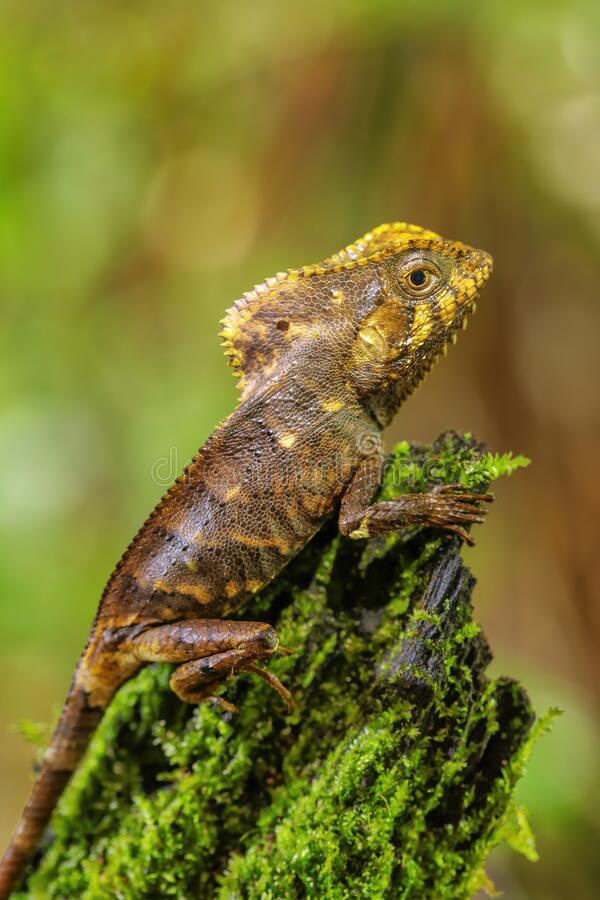ANIMAL: Smooth Helmeted Iguana/Smooth Helmeted Basilisk Corytophanes cristatus Type of Animal: Iguanid Habitat: Forests, quiet gardens Location(s): Ranges from S Mexico to NW Colombia Appearance: Gray, olive, brown, black, or reddish-brown lizard w/ irregular blotches, can change skin color, both sexes have crest though males have larger crest, long tail Food/Diet: Insects, insect larvae, worms, other lizards, spiders, young mice Status in Wild: Stable Conservation: Breeding in zoos, herpetoculture, & aquariums Lifestyle: Solitary or small harems of a male w/ 2-4 females Additional Info: Called: Male Female Hatchling Young: Leap Weight: Male: 7-8 lbs Female: 6 lbs Gestation: 2 months Life Span: 7-12 years Body Length: Male: 5 in Female: 4.8 in Young: 3 in Tail Length: Male: 12.5 in Female: 12 in Young: 6.5 in Also called Elegant Helmeted Lizard, Forest Chameleon, Iguana de Casco, Perro Zampopo, Casque-Headed Iguana, & Old Man Lizard. They’re semiarboreal-more at home in the trees but comfortable on ground as well. They’re ambush predators, though sometimes they actively hunt prey. These lizards very wary of predators & freeze at approach of danger from up to 49 ft away. Changing skin color aids in camouflage. Females lay 5-11 eggs in forest floor depressions. Males use crest to show dominance/attract females & females use it to show dominance as well as to excavate nests. Sometimes kept as pets. Active during day (diurnal). If camouflage & freezing don’t work to avoid predators, they’ll flee. If that doesn’t work, they’ll compress body, erect crest, expand gular pouch, & bob head. Head-bobbing also used to assert dominance & attract mates. Nests are 1.97-3.93 in in diameter. While females don’t take care of young, they will defend nests. Long legs & grasping toes aid in climbing. A 3rd eyelid protects vision. Fun Fact(s): These lizards can remain motionless for long time periods. In fact, algae, fungi, & plants have been observed growing on them. These lizards don’t use sun to increase body temp-rather they maintain body temp closer to shadier areas.
